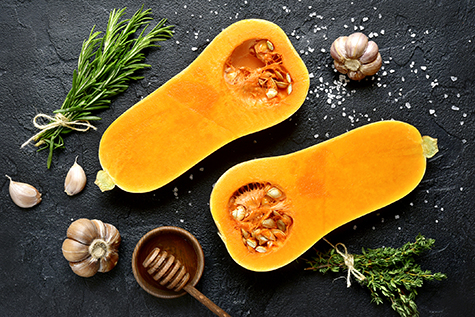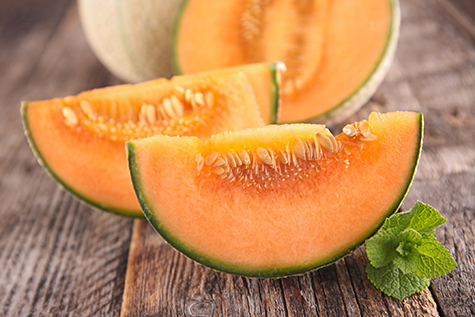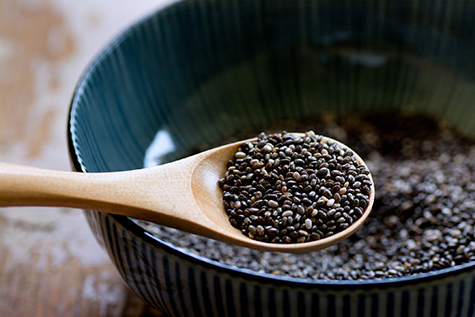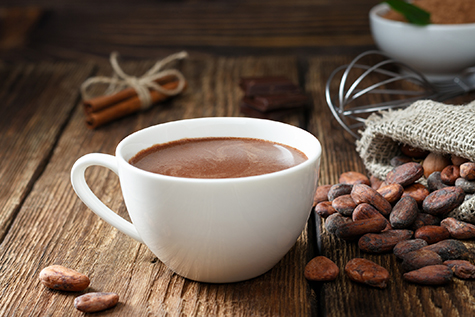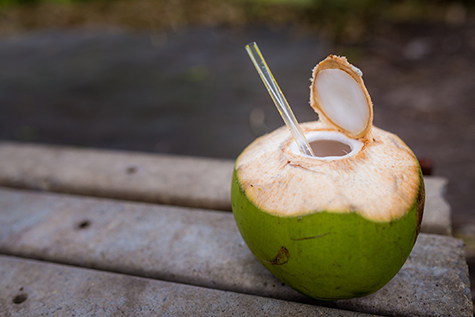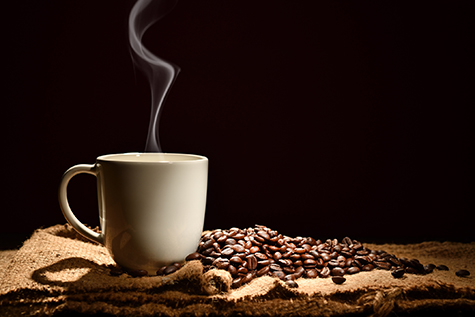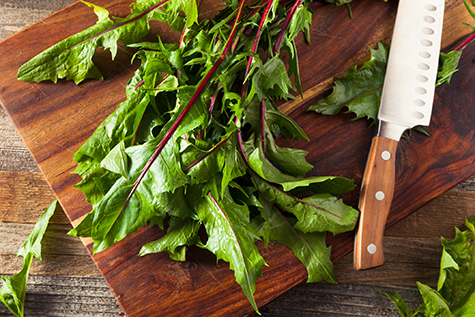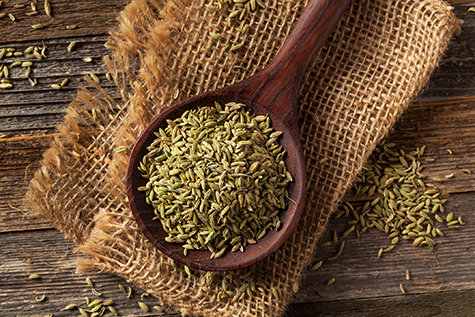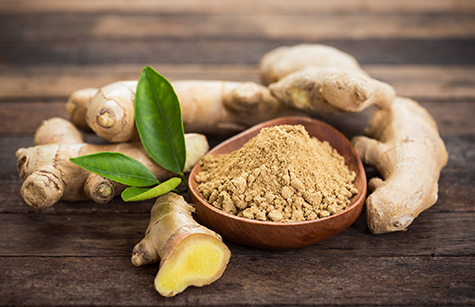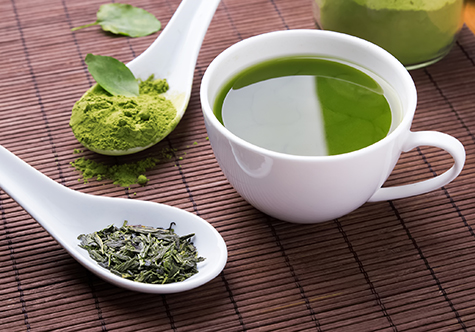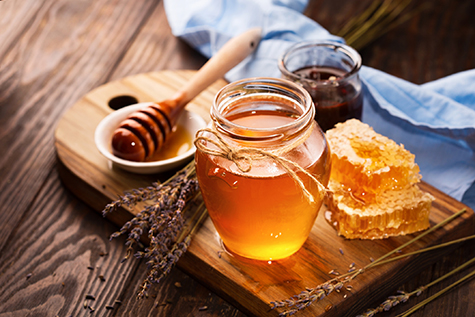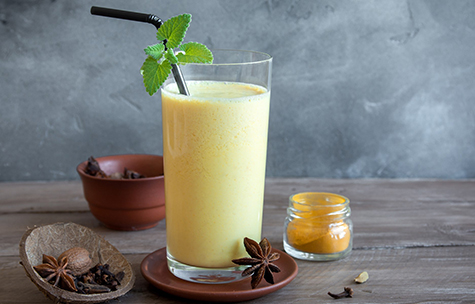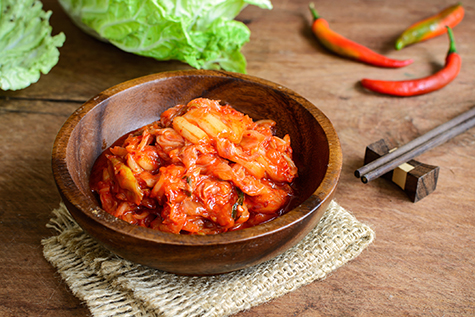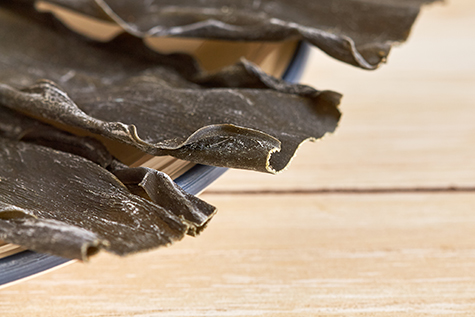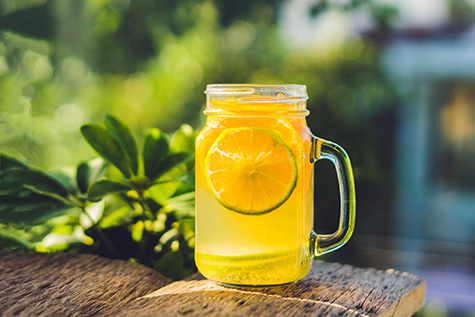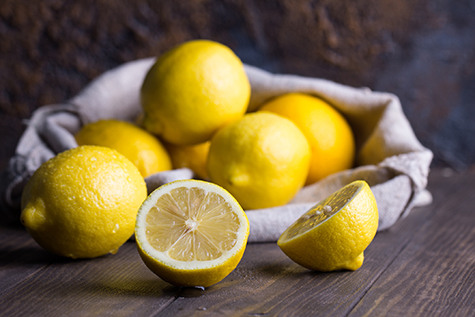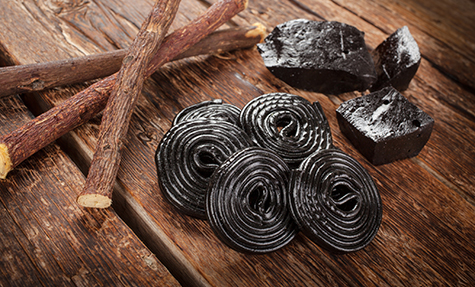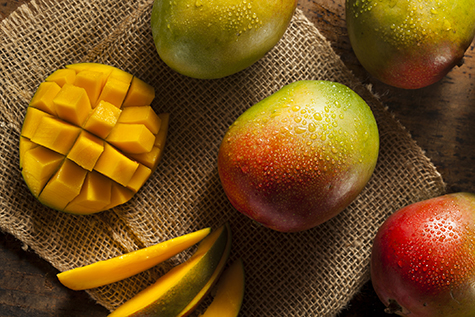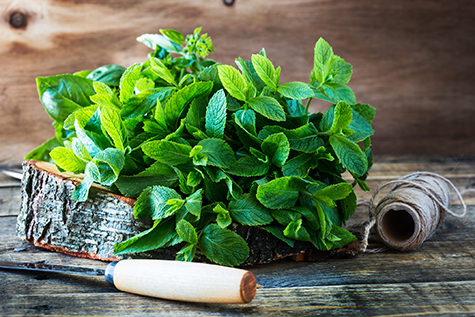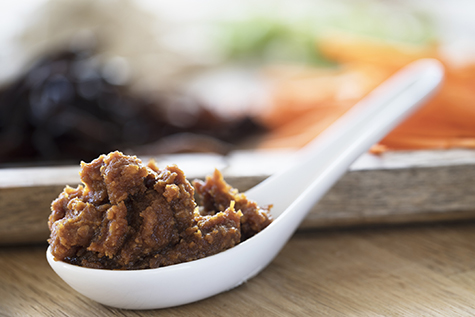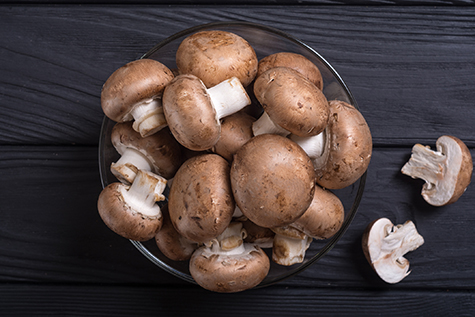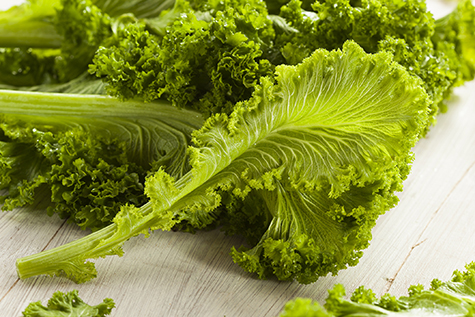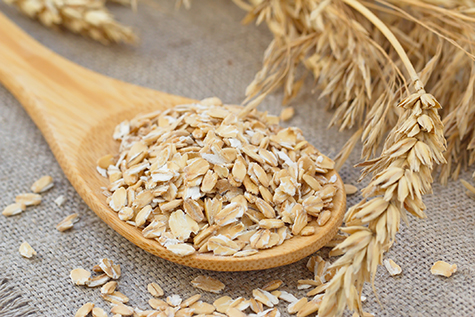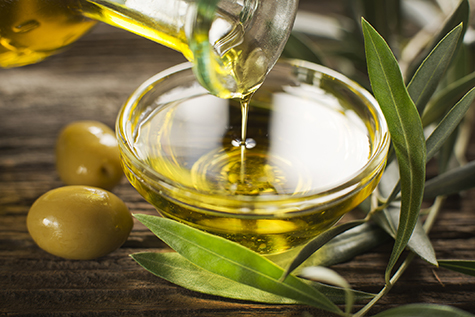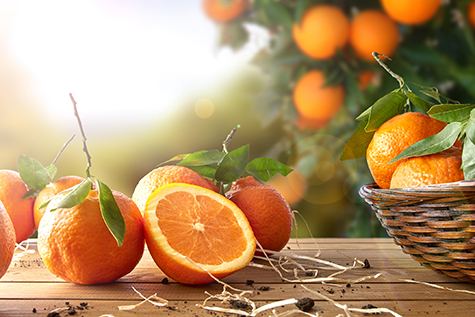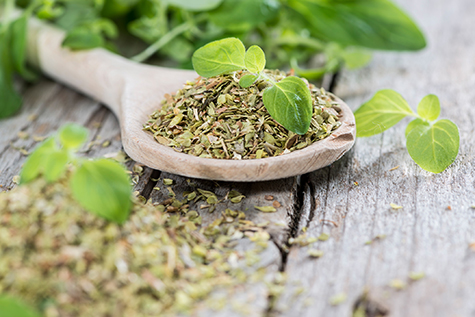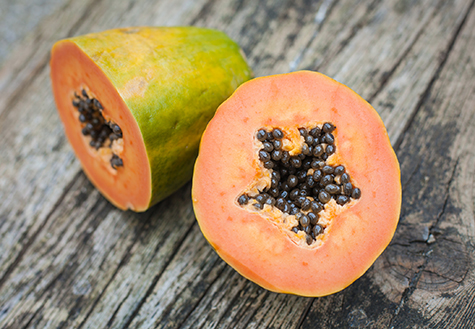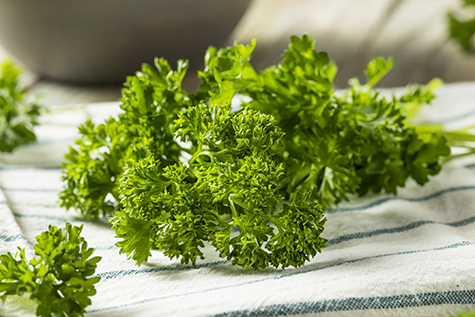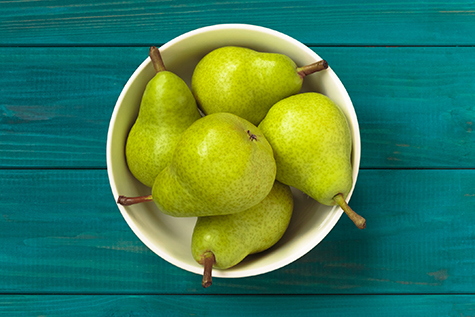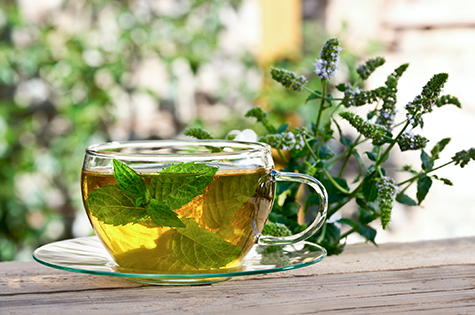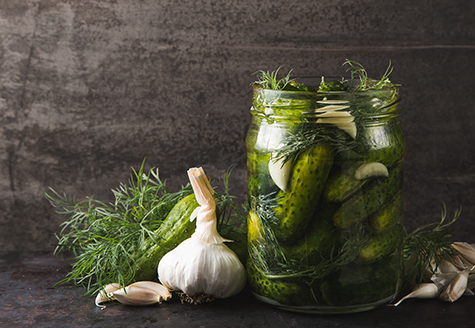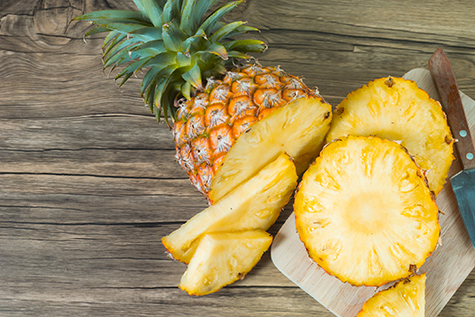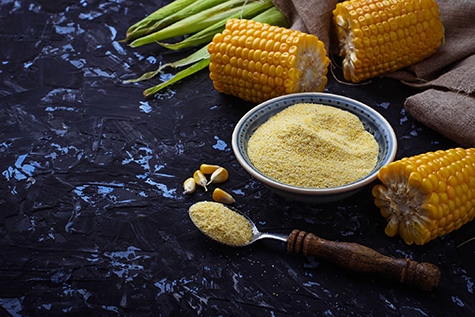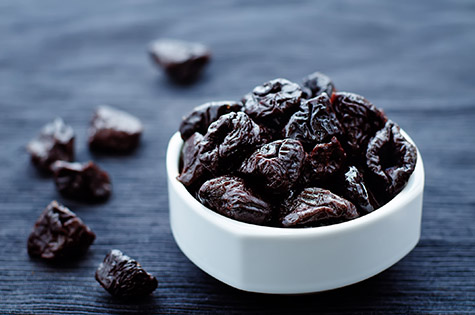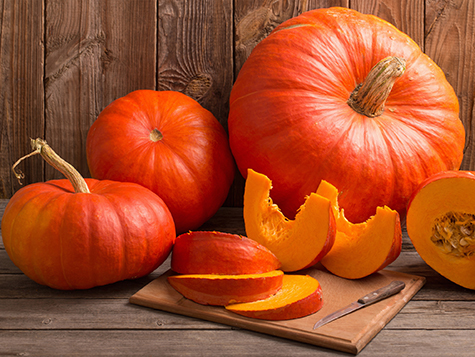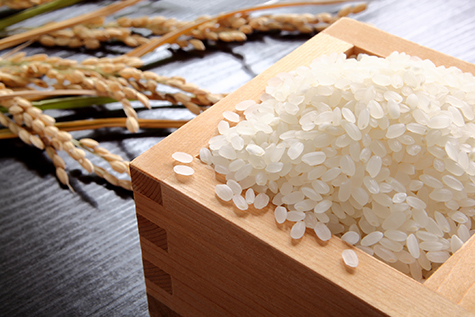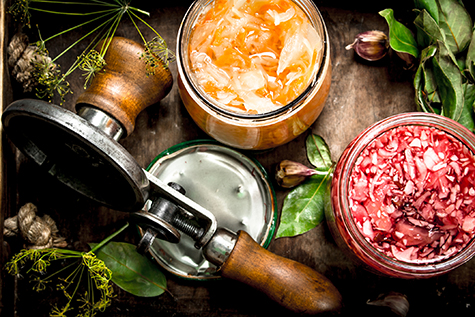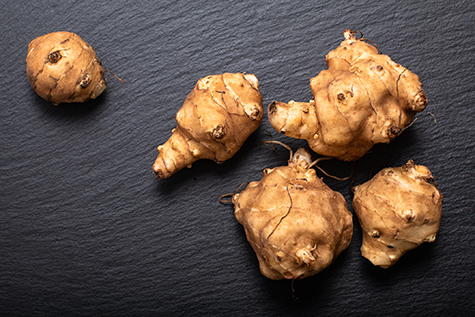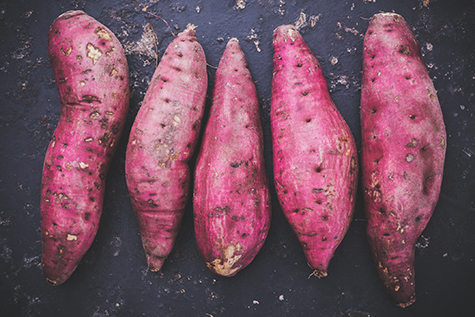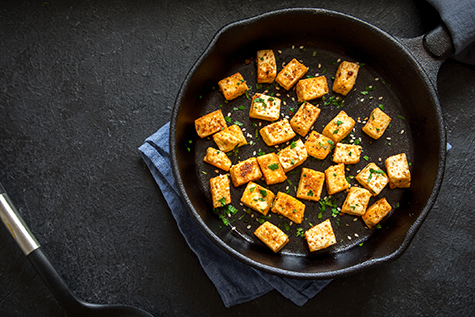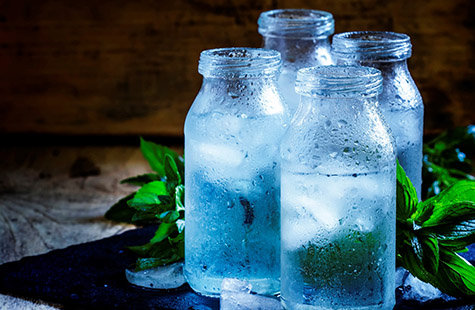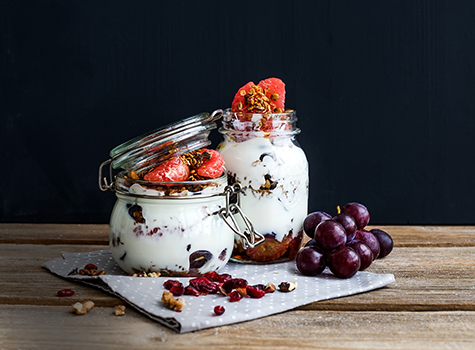Try These Top 50 Foods for Your GI System

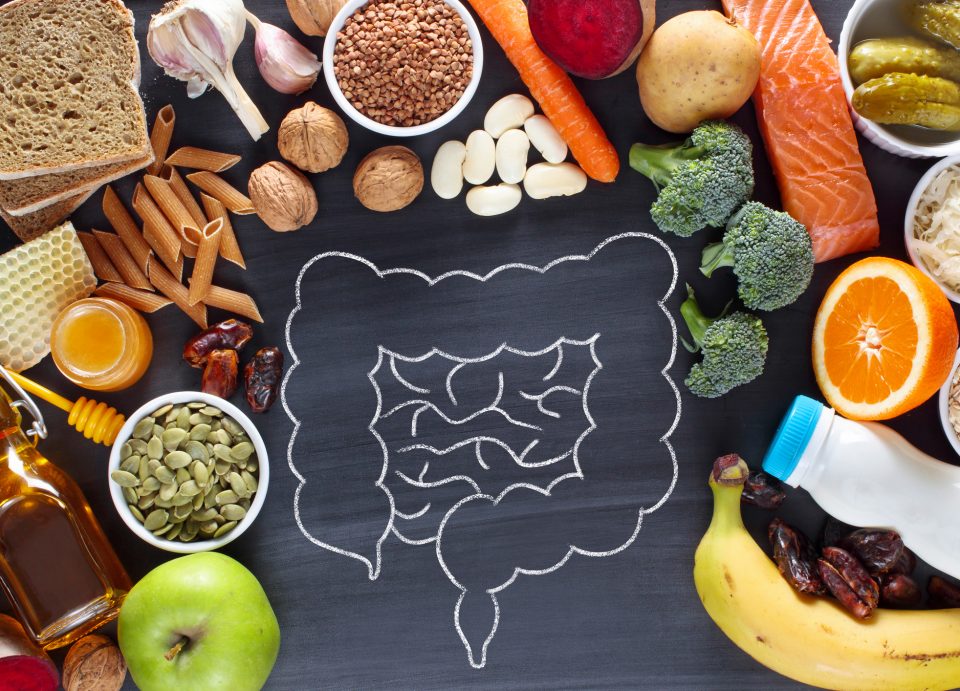
How’s your gastrointestinal system feeling these days? From the incredible science of the microbiome to general tummy troubles like gas, bloating, constipation, diarrhea and pain – the role and health of the ‘GI’ system is on everyone’s mind, especially during the eating-holidays of fall and winter. There are some common denominators to keeping the gut happy. Fiber, anti-inflammatory foods, and soothing substances top the list of 50 foods that support the GI system. Whether you’re feeding the gut with prebiotics, inoculating it with probiotics or simply feeding it to make it work smoothly, you should include these foods in your diet today.
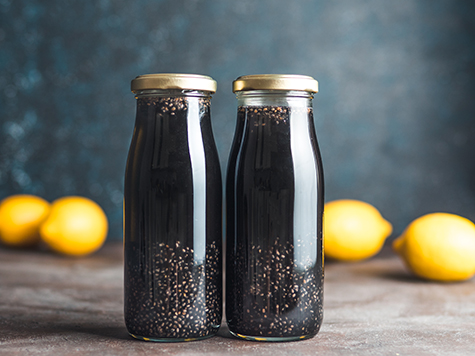 1. ACTIVATED CHARCOAL
1. ACTIVATED CHARCOAL
Charcoal is popping up in supplements and on menus because of its intriguing potential health benefits. Thought to bind with toxins in the gut, you should use caution with this one because, though there are some promising outcomes, it may possibly cause or worsen constipation and can also bind with nutrients your body needs. When using it as a targeted treatment, it can help soothe the gut, keeping it healthy when traveling.
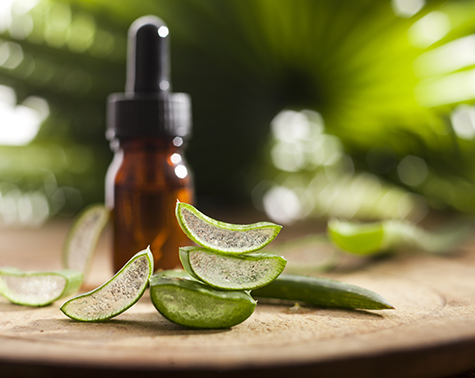 2. ALOE
2. ALOE
A top gut soothing herb, aloe works on the digestive tract like it does on the skin for a sunburn. Its viscous fibers coat the gut and create a soothing barrier during times of irritation. Use caution because aloe can block the gut from absorbing the nutrients it needs in food so using it short term as needed is generally best.
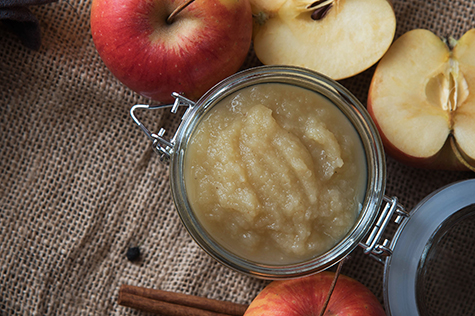 3. APPLESAUCE
3. APPLESAUCE
Ever heard of the “BRAT” diet for an upset stomach? Bananas, rice, applesauce and toast are bland foods that help heal the gut and return it to optimal health. Apples are a rich source of soluble fiber and in blended form, are generally very well tolerated, giving the gut a little rest. If you’ve got tummy troubles, reach for some unsweetened applesauce right away.
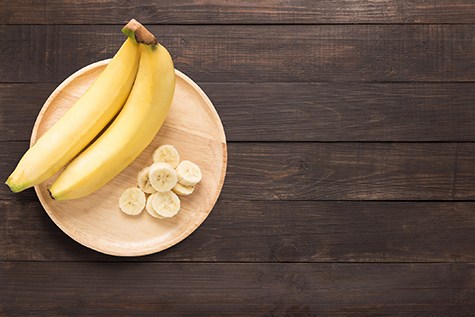 4. BANANAS
4. BANANAS
The leader of the “BRAT” protocol, bananas are another high fiber, soft, soothing food for the stomach during times of irritation. Bananas make a good binder and, though they can cause constipation for some people, they’re fantastic for treating diarrhea or loose stools. Bananas are a perfect grab-and-go snack and also contain electrolytes like potassium to keep your system running smoothly.
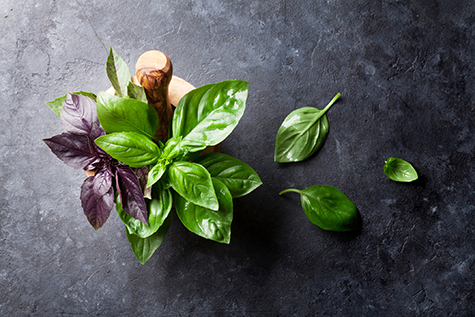 5. BASIL
5. BASIL
Herbs like basil are full of soothing antioxidants for the gut. Fresh or dried basil has been shown in animal and human studies to reduce gas, bloating, constipation and diarrhea. The reason basil helps the GI is likely because it decreases the production of stomach acid and calms histamine receptors.
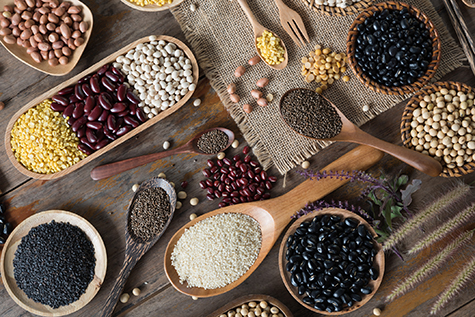 6. BEANS
6. BEANS
Beans sometimes get a bad reputation for the gut – in some people they can cause gas and bloating. This is often because people aren’t used to the high amount of fiber that beans provide. Black, pinto, cannellini, kidney, chickpea and beyond, all beans are healthy for the gut and packed with vitamins, minerals, antioxidants and fiber to keep you regular. To increase the digestibility of beans, increase them slowly over time in the diet. Use a seaweed like kombu when cooking beans and always rinse off the liquid in canned beans.
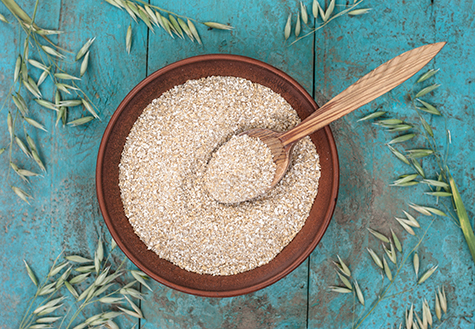 7. BRAN
7. BRAN
There’s a reason bran is considered a health food – including it in hot or cold cereal, blended into pancakes, waffles or muffins keeps the gut running smoothly. Bran is a whole grain high in fiber and nutrients. It keeps the digestive tract moving along smoothly for proper regular elimination and it also provides fuel for the good bacteria living in your colon. These bacteria make vitamins for our bodies and may even play a role in brain health, the immune system, weight and inflammation.
8. BUTTERNUT SQUASH
Squash is a high fiber vegetable full of water, vitamins, minerals and antioxidants that can be incorporated into your diet to support gut health. All varieties of squash contain a high content of antioxidants lutein and zeaxanthin which calm inflammation and irritation in the body and butternut squash in particular is packed with beta-carotene, commonly found in orange-colored veggies. Turn it into a stomach soothing soup by roasting then blending with broth and calming herbs and spices until smooth.
9. CANTALOUPE
Start your day off right with cantaloupe for breakfast to let your gut know that it’s going to have a good day. The orange color of this melon immediately tells you it contains carotenoids like vitamin A for anti-inflammatory support. It’s also full of vitamin C and fiber to decrease inflammation and support regularity and healthy elimination habits. Cantaloupe can help ease constipation.
10. CHIA SEEDS
If you’re looking for fiber to support the gut, chia is where it’s at. Tiny chia seeds offer 5 grams of fiber per tablespoon. A chia pudding or smoothie can get you nearly half the fiber you need in a day if you add 2-3 servings. They also offer a source of protein and omega-3 fatty acids which offer anti-inflammatory properties to help soothe the gut.
11. COCOA
While the fat and sugar in a chocolate treat can be irritating to the GI system, unsweetened cocoa powder can help it by calming inflammation. Cocoa contains more phenolic antioxidants than most foods. Flavonoids including catechin, epicatechin, and procyanidins are dense in this bitter powder. Get creative by adding cocoa to smoothies and low-sugar recipes where it’s natural bitterness and complexity shine through.
12. COCONUT WATER
If you’re experiencing fluid loss from diarrhea or vomiting, you need to get your hands on some coconut water. Rehydrate with the natural fluid content of coconut water plus electrolytes like sodium and potassium. Rather than added sugars, color and flavor in other sports rehydration beverages, coconut is all natural. Make sure to choose an unsweetened variety.
13. COFFEE
Though the acidity in coffee can irritate conditions like gastritis or GERD/acid reflux, it can also help with healthy bowel movements in the morning. The caffeine combined with the warmth of the liquid helps stimulate elimination in the morning for many people. Coffee can be a great natural, no calorie, gut support. Just be sure not to load it up with cream and sugar which are both irritants.
14. DANDELION GREENS
There’s one critical piece of digestion that must be supported; the liver and gallbladder. Without these working properly, the body can’t get bile into the stomach to digest food. If the gallbladder has been removed, the liver can pick up the slack, but if you have a gallbladder, you’ll want to support it with bitter greens like dandelion. The greens of this common flowering weed are known for enhancing detoxifying activity in the liver. If you can’t get your hands on the fresh greens, feel free to include dandelion tea in your diet for similar benefits.
15. FENNEL SEEDS
If you’ve got an upset stomach, make sure to immediately reach for fennel seeds. Proven to calm the upper GI system, these tiny seeds flavored like anise calm nausea and settle the stomach. They can make a wonderful end to a rich meal or can be used on their own in times of stomach troubles.
16. GINGER
A well-known root that calms the stomach and relieves nausea, ginger is a must-have for your medicine cabinet. It’s naturally spicy flavor can be used as a chew, infused into a beverage such as water or tea, or grated into a variety of recipes ranging from cereal and dessert to stir-fry, marinades and dressings. Sniff some ginger or chew on some to calm an upset stomach when ill, pregnant, traveling, or undergoing medical treatments that cause nausea or vomiting.
17. GREEN TEA
The ultimate antioxidant beverage, green tea contains powerful compounds called catechins and amino acid L-theanine. These compounds target relaxation and the reduction in stress which can help support the GI system. Better yet, like coffee, unsweetened green tea can act as a stimulant in the morning to get the gut going and start the day off right with healthy elimination.
18. HONEY
This natural sweetener contains some gut soothing properties in addition to its wonderful flavor. There’s a reason that mixing honey into tea is comforting; raw honey is a source of prebiotics that help fuel the gut and feed the good bacteria that live there and help many systems in the body.
19. KEFIR
Have you seen this fermented dairy beverage in your yogurt aisle? Luckily, kefir is gaining in popularity along with other fermented foods that are known to feed the good bacteria in the gut. Did you know that we have more bacteria living in our guts than there are human cells in the body? This massive system benefits from diversity of bacteria so when we introduce other good bacteria from fermented foods like kefir, it can be a big benefit. When looking for kefir, just like yogurt, make sure to choose a lower sugar variety.
20. KIMCHI
This traditional Korean fermented cabbage contains good bacteria that can help support your gut microbes and keep the digestive system running smoothly. Introduce healthy outside bacteria to support diversity in your own gut with a variety of fermented foods. Better yet, kimchi is low in calories and high in fiber, vitamins and minerals.
21. KOMBU
The dried sea vegetable kombu should be in your kitchen cupboard for use in soup and bean dishes. Using even a small strip of kombu can increase the digestibility of bean dishes when used during cooking. It also infuses in a variety of vitamins and minerals to any dish it’s added to, so use this versatile seaweed to maximize nutrients and increase that umami flavor in soups and stews.
22. KOMBUCHA
Another fermented beverage, kombucha has a sweet and slightly vinegar flavor. This fermented tea contains good bacteria that can support healthy digestion through boosting diversity of bacteria in the gut. Research shows that the desirable bacteria in fermented foods like kombucha may compete for nutrients with damaging pathogens in the body and may even enhance the gut immune response against bad bacteria.
23. LEMON
Not only is lemon a potent source of antioxidant vitamin C, it also stimulates the liver and gallbladder for proper function and digestion. If you need a boost in the morning that accompanies hydration, drink a cup of warm water with lemon added. You will ready your digestive system for the day and may even stimulate a morning elimination to keep you regular.
24. LICORICE
Deglycyrrhizinated licorice, called DGL, is used before meals to treat reflux and stomach upset. Some of the best evidence for using licorice is for conditions of the stomach and digestive system. It also has been shown to provide anti-ulcer and anti-viral support in studies. Next time you’re feeling stressed or have an upset stomach, licorice could be just the thing that helps.
25. MANGO
Fresh or dried, sweet mangos support the GI system with fiber to support a healthy microbiome and vitamin A which has been linked to a strong immune system and reduced inflammation. When purchasing, make sure that you buy a variety without added sugar because sugar can be an irritant to the stomach and gut.
26. MINT
If you’re feeling queasy, fresh mint from the garden may be able to calm your stomach. Mint is versatile and can brighten up water, salads, desserts and dishes like fresh spring rolls with their aroma and spicy flavor. If taste changes or stomach upset due to medications like chemotherapy are bothering you, mint can help minimize symptoms and get you feeling more normal again.
27. MISO
This fermented soybean paste is often consumed in a soup or hot, savory beverage along with other healthy foods for the GI like sweet potato and seaweed. One benefit of a preparation like miso is the presence of gut health promoting probiotics because of the fermentation process. If your gut is bothering you, sipping a hot cup of miso soup could be just the thing you need for support as well as a healthy microbiome.
28. MUSHROOMS
All mushrooms contain a unique gut supporting fiber called beta glucans. Also found in other healthy foods for the gut like oats, this type of fiber helps fuel the good microbes in the colon. Another benefit of mushrooms? They are rich in vitamins and minerals, containing high levels of calming potassium and B-vitamins which can help during times of gut irritation.
29. MUSTARD GREENS
Similar to other bitter greens like dandelion, mustard greens are packed with compounds that stimulate digestive enzymes and support the stomach. Mustard greens also contain antioxidants, vitamins and minerals and support detoxification in the liver. Bitter compounds in food are stimulating to liver function and contain the nutrients needed for both phase 1 (activation) and phase 2 (elimination) detox.
30. OATS
Oats are a whole grain that contain gut-supporting fiber. Another source of beta-glucans, like mushrooms, oats contain compounds that boost the immune system and ward off disease and illness. Start your day off right with oatmeal or add it into recipes like baked goods and smoothies to ensure your GI system stays regular.
31. OLIVE OIL
Though fat sources like oil are slower to digest and can cause GI upset in some people, it can also help the gut because of its healthy monounsaturated fats, as well as the inflammation-fighting antioxidant oleocanthal. Watch your portions of olive oil but include it in the diet to keep the gut happy.
32. ORANGES
If you struggle with regularity, include an orange in your diet every day. This grab-and-go snack only offers 50 calories in a serving plus filling water and fiber to help keep your bowels healthy. Better yet, you can replace sugary foods that can really irritate the gut with a sweet snack like an orange or tangerine.
33. OREGANO
Oil of oregano is a classic gut soother and works as a potent anti-viral and anti-bacterial to ward off stomach troubles. Don’t be afraid to add oregano liberally to your recipes – try it in sauces or marinades, as a garnish and in salad dressings. Oregano can be a wonderful supplement to use when traveling to avoid stomach issues.
34. PAPAYA
Enzymes in papaya are proven to sooth the stomach. Papaya contains proteolytic enzymes that help break down the protein in your diet. You can get access to this benefit by eating papaya or taking chewable supplements. The salmon pink color of this fruit indicates the presence of antioxidant lycopene, found in other red fruits like tomatoes and watermelon.
35. PARSLEY
Often used in American cuisine as a simple garnish, other cultures incorporate this herb into dishes for the flavor and incredible health benefits including gut support. Whether you enjoy flatleaf or curly, you can chew it to improve your breath, ease constipation and gas/bloating, as well.
36. PEARS
One of the richest fruits in fiber, one medium-sized pear contains 6 grams. In comparison, a serving of Metamucil powder only contains 2.4 grams of fiber. Eating the skin of a pear is important because it contains a large amount of the fiber in this fruit. Swap out an apple or orange for a pear instead for an on-the-go snack that can help keep you regular.
37. PEPPERMINT
A well-known digestive aid, peppermint oil and tea are regularly used to calm stomach muscles and improve the flow of bile from the liver to support digestion. Keep in mind that peppermint can actually worsen the symptoms of heart burn or gastric reflux so work with your doctor or dietitian to use this correctly.
38. PICKLES
Another fermented food, pickles – especially the ones kept cold to keep the bacteria alive and thriving – have shown promise in supporting human health in a variety of ways. With more bacteria living in our lower guts than actual human cells in our body, the health of the microbiome likely has far reaching effects on inflammation, the immune system, and even weight and mood.
39. PINEAPPLE
Similar to papaya, pineapple contains powerful enzymes that support stomach health and digestion. This tropical fruit provides unique compounds including bromelain that are proven to aid digestion so that the body can properly break down and absorb other critical nutrients, keeping other foods moving through the digestive tract quickly and efficiently.
40. POLENTA
While whole corn can pass through the digestive system intact, polenta is a corn-based product that can sooth the stomach and is easy to digest. Cornmeal is ground into a dough and then boiled to create a whole grain congee-type base. This can be a neutral, soothing choice if you’re not feeling well. Be sure to avoid any polenta that has rich sauces or spices added or that have been fried as these preparations can be irritating to the stomach.
41. PRUNES
One of the best foods to alleviate constipation, dried plums (prunes) are incredibly high in fiber. Prunes are proven to support healthy digestion, moving things along if you’re not having regular bowel movements. Prunes are a wholesome, natural alternative to other, more harsh products used to ease constipation.
42. PUMPKIN
A classic winter squash, pumpkin soothes the gut with a variety of fiber and calming antioxidants including vitamins A and C. One of the benefits of pumpkin for the gut is its pectin content. A natural type of soluble fiber, pectin can help treat both constipation and diarrhea.
43. RICE
If you’re not feeling well, making a soothing congee out of rice is the answer to your gut issues. The “R” in the stomach calming BRAT diet, there’s a reason to use rice to support stomach irritation. Its rich in minerals like manganese, selenium and phosphorous and high in soluble fiber yet easy to digest. Congee porridge is made by boiling rice until it’s thick, creamy and smooth.
44. SAUERKRAUT
Like other fermented foods, sauerkraut has been used in traditional cuisines for hundreds of years for good reason. Beneficial bacteria in the form of probiotics that support gut health are introduced through sauerkraut and other fermented options (think kimchi) and increase diversity of good gut bacteria and keep digestion running smoothly.
45. SODA WATER
A wonderful alternative to still water, juice or colas, water infused with carbonation doesn’t contain any added sugars, colors or flavors and can settle the stomach in times of irritation. Sip soda water to sooth indigestion, cramping or heartburn. Human studies have proven that soda water can ease both stomach irritation as well as constipation.
46. SUNCHOKES
If fermented foods are an important source of bacteria for the gut, prebiotic foods are the critical piece to help support and feed those good bacteria. Also called Jerusalem artichokes, sunchokes are a small root vegetable that support the gut. They offer a compound called oligosaccharides which the healthy bacteria in your lower gut loves to feed on.
47. SWEET POTATO
In studies, the starch in sweet potatoes has been proven as a slowly digestible fiber that supports gut health. Sweet potatoes contain calming vitamin A and lycopene for anti-inflammatory properties. To better support gut health, don’t add more irritating sweet flavor like brown sugar. Instead, try spices like cinnamon, cloves, garlic or paprika to sooth the gut during times of irritation.
48. TOFU
All soy provides easy-to-digest, low fat protein that can support the gut during times of distress, but one particular benefit of soy foods includes fermentation. Tempeh and miso in particular are a rich source of probiotics in the diets to support the microbiome. Infuse your diet with good bacteria by including these foods regularly in the diet.
49. WATER
In order to keep the bowels moving along with ease, proper hydration is necessary. In addition to hydrating the bowels and providing the right amount of fluids necessary for elimination, plain water has benefits over many other beverages, many of which are in fact bowel irritants. Replace any beverages like coffee, cola, energy drinks, sweet tea, or juice with water to reduce sugar, caffeine and other compounds that could worsen GI issues.
50. YOGURT
A final fermented food, there is evidence that the good bacteria in yogurt supports the microbiome and helps create a healthy gut. Yogurt has been used in traditional cultures around the world for hundreds of years for good reason. A natural way of preserving nutrient-rich dairy, the good bacteria in yogurt helps diversify our own gut bacteria.
RESOURCES
Cuomo R, Grasso R, Sarnelli G, Capuano G, Nicolai E, Nardone G, Pomponi D, Budillon G, Ierardi E. Effects of carbonated water on functional dyspepsia and constipation. European journal of gastroenterology & hepatology. 2002 Sep 1;14(9):991-9.
Ha AW, Han GJ, Kim WK. Effect of retrograded rice on weight control, gut function, and lipid concentrations in rats. Nutrition research and practice. 2012 Feb 1;6(1):16-20.
Dalrymple N. When a nervous stomach becomes a problem. YA Hotline. 2018(106).
Worlds Healthiest Foods Banana.
Worlds Healthiest Foods Brown Rice
Worlds Healthiest Foods Chia and Flax
Khan N, Mukhtar H. Tea and health: studies in humans. Current pharmaceutical design. 2013;19(34):6141-7.
Manchali S, Murthy KN, Patil BS. Crucial facts about health benefits of popular cruciferous vegetables. Journal of Functional Foods. 2012;4(1):94-106.
Messina V. Nutritional and health benefits of dried beans. The American journal of clinical nutrition. 2014 Jul 1;100(Supplement 1):437S-42S.
Marco ML, Heeney D, Binda S, Cifelli CJ, Cotter PD, Foligné B, Gänzle M, Kort R, Pasin G, Pihlanto A, Smid EJ. Health benefits of fermented foods: microbiota and beyond. Current Opinion in Biotechnology. 2017 Apr 1;44:94-102.
Tochi BN, Wang Z, Xu SY, Zhang W. Therapeutic application of pineapple protease (bromelain): a review. Pakistan journal of nutrition. 2008;7(4):513-20.
de Escalada Pla MF, Ponce NM, Stortz CA, Gerschenson LN, Rojas AM. Composition and functional properties of enriched fiber products obtained from pumpkin (Cucurbita moschata Duchesne ex Poiret). LWT-Food Science and Technology. 2007 Sep 1;40(7):1176-85.
Jo AR, Kim HR, Choi SJ, Lee JS, Chung MN, Han SK, Park CS, Moon TW. Preparation of slowly digestible sweet potato Daeyumi starch by dual enzyme modification. Carbohydrate polymers. 2016 Jun 5;143:164-71.
Natural Medicines Database. Basil. https://naturalmedicines.therapeuticresearch.com/databases/food,-herbs-supplements/professional.aspx?productid=303. Updated 8/15/18. Accessed 11/1/18.
Natural Medicines Database. Oregano. https://naturalmedicines.therapeuticresearch.com/databases/food,-herbs-supplements/professional.aspx?productid=644. Updated 9/6/18. Accessed 11/1/18.
